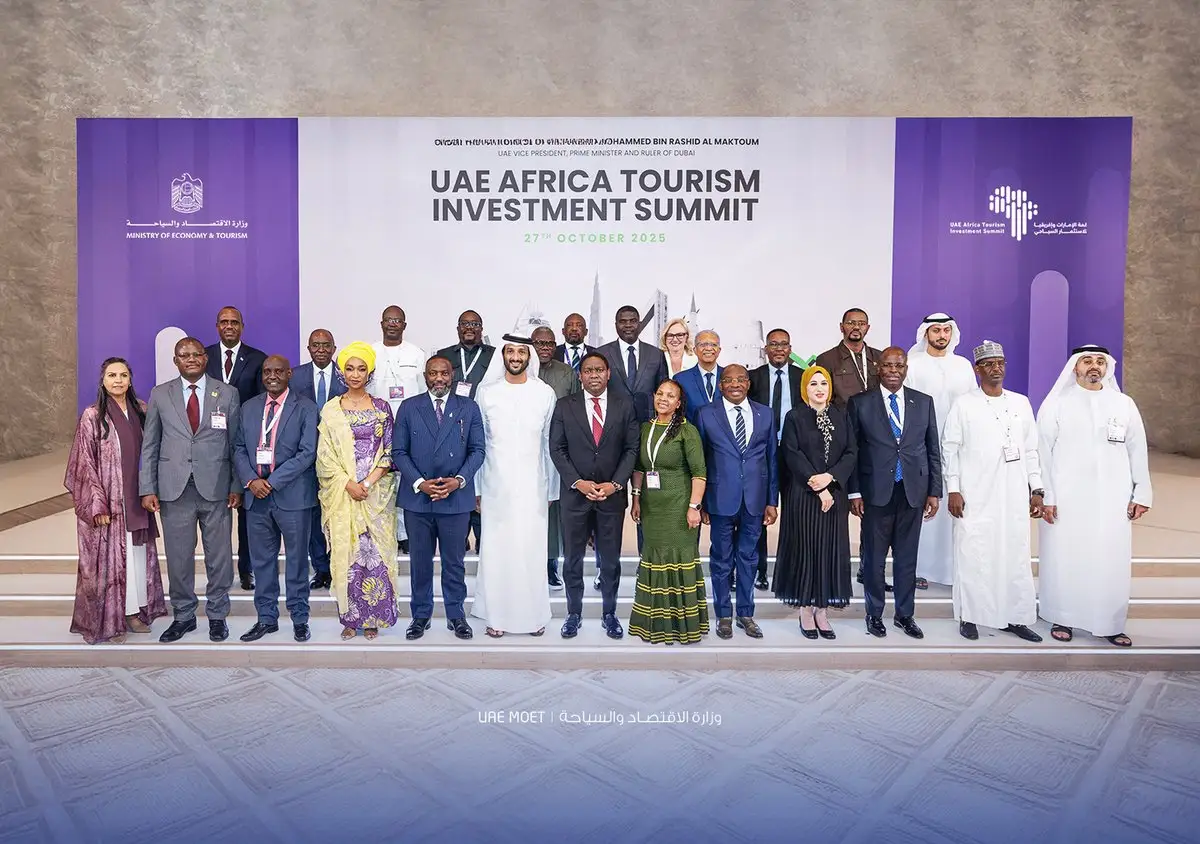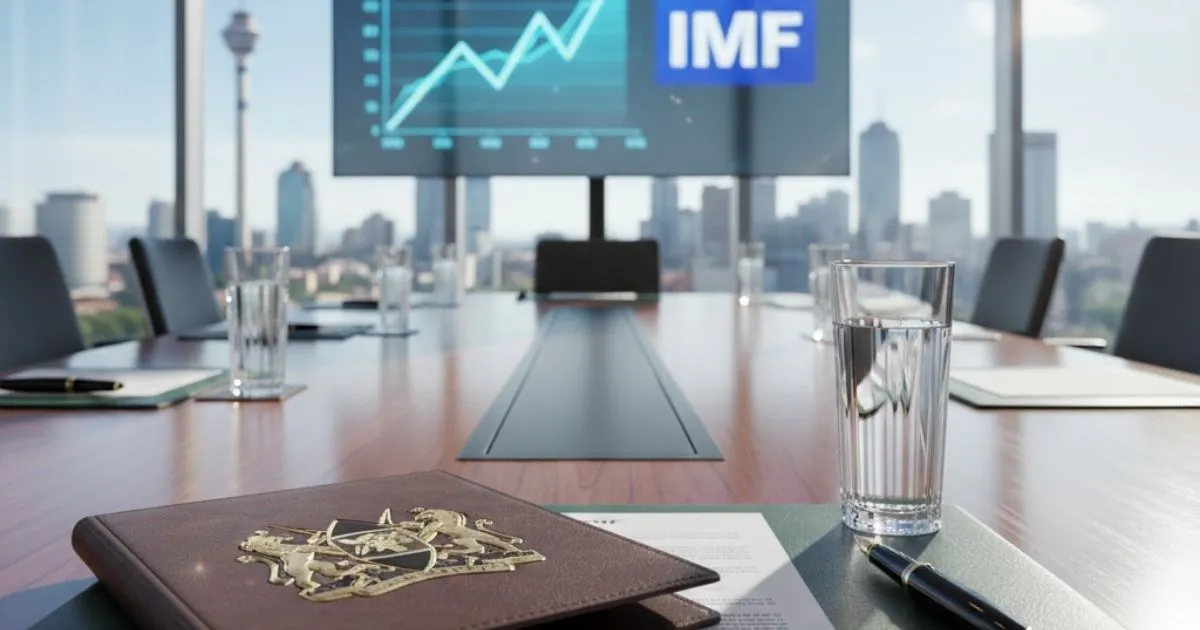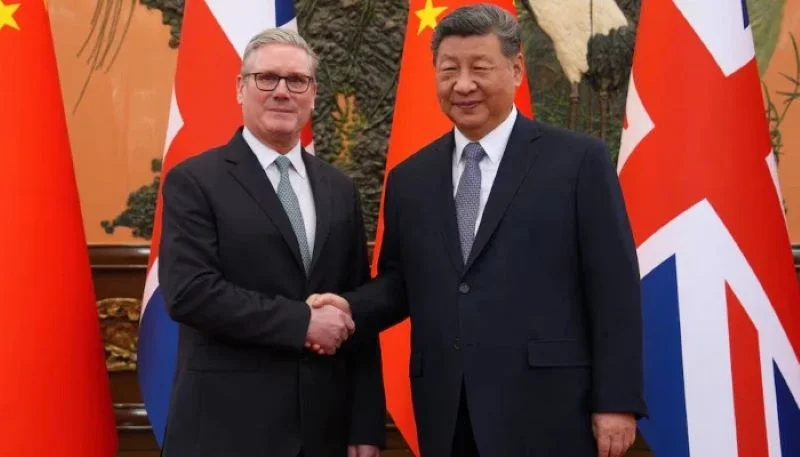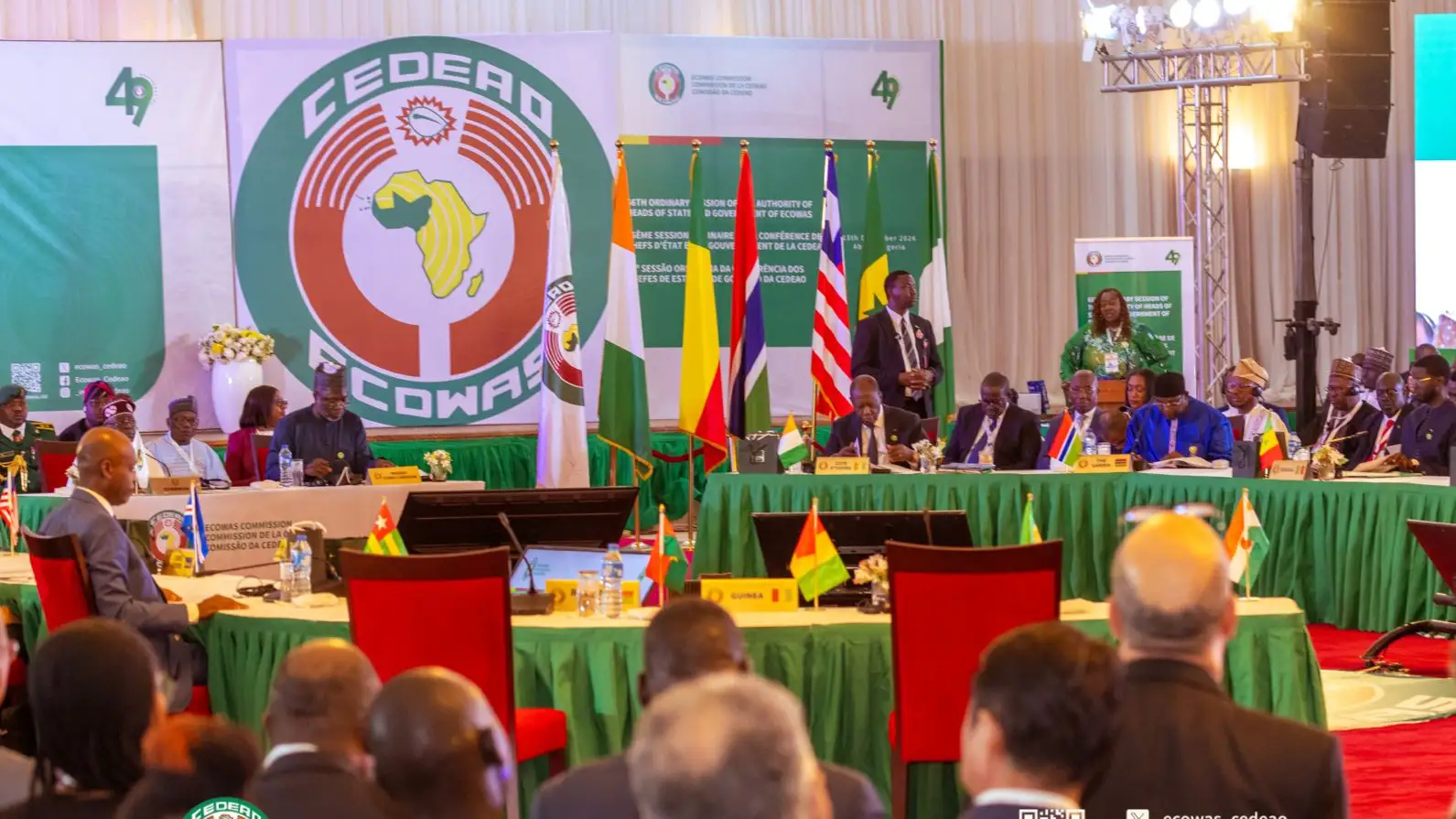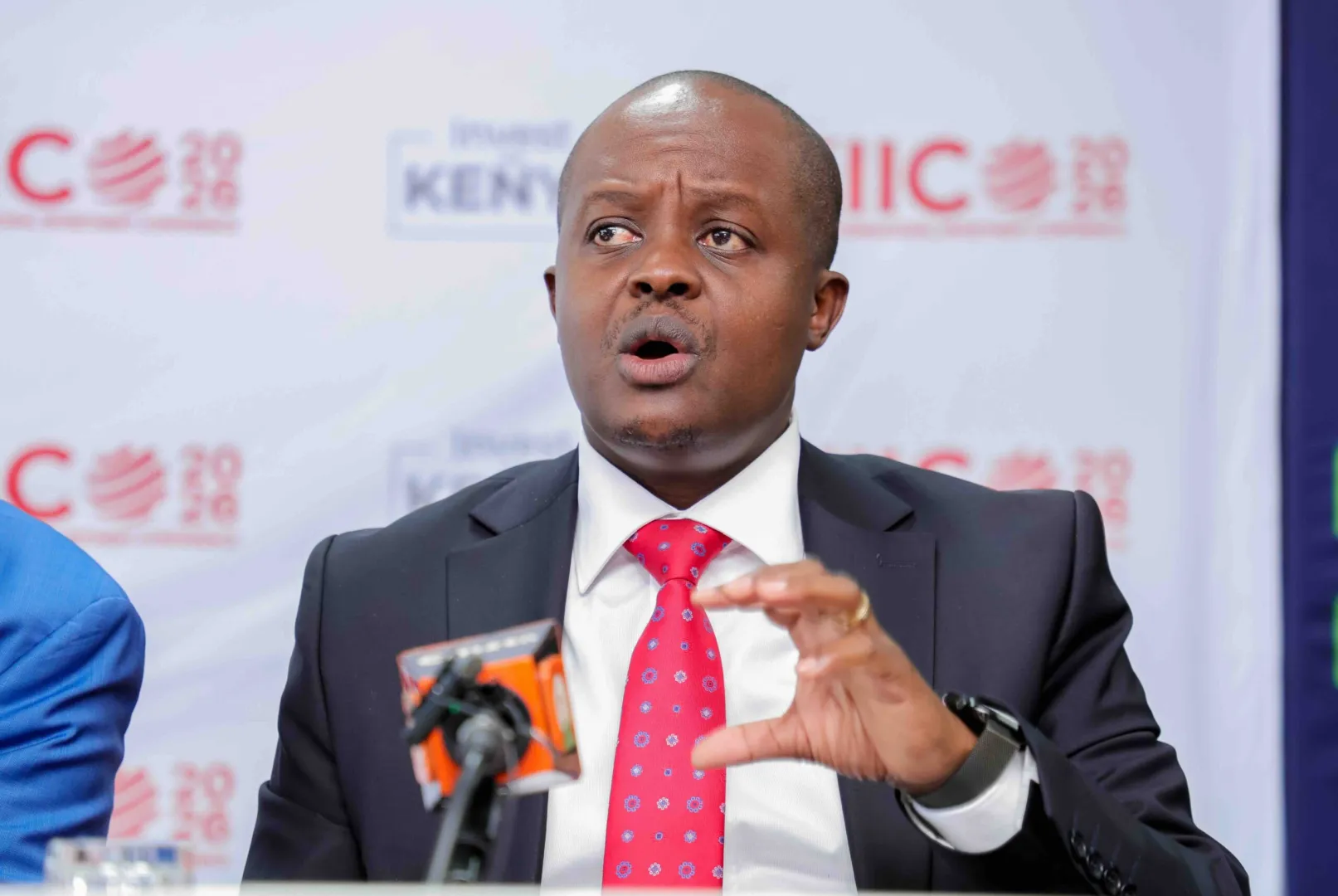The United Arab Emirates has solidified its position as one of Africa’s most strategic economic partners, ranking fourth globally in continental investments behind only the United States, China, and the European Union. Between 2019 and 2023, Emirati companies invested more than $110 billion in new projects across Africa, positioning the nation as a transformative force in the continent’s economic development and a leading investor in terms of new project volume.
This remarkable investment trajectory underscores the UAE’s growing influence as an emerging economic powerhouse with strategic importance in Africa’s development. The investments span multiple critical sectors, with tourism emerging as a cornerstone of this bilateral relationship alongside energy infrastructure, logistics, and real estate development.
Build the future you deserve. Get started with our top-tier Online courses: ACCA, HESI A2, ATI TEAS 7, HESI EXIT, NCLEX-RN, NCLEX-PN, and Financial Literacy. Let Serrari Ed guide your path to success. Enroll today.
Green Energy Leadership: The Foundation of UAE-Africa Partnership
Of the total $110 billion investment portfolio, more than $70 billion has been strategically directed toward green energy, renewable energy sectors, and other environmentally positive projects in Africa. This substantial commitment to sustainable development positions the UAE as a beacon of environmental responsibility on the continent and underscores its ambition to become a major contender in the global green energy marketplace.
The UAE’s renewable energy footprint in Africa is substantial and growing. Dubai-based AMEA Power, one of the fastest-growing renewable energy companies in the region, has commissioned large-scale projects including the 50 MW Blitta solar plant in Togo—the largest in West Africa—the Zina solar facility in Burkina Faso, and the Bondoukou solar plant in Côte d’Ivoire, the country’s first privately-owned solar facility.
Meanwhile, Abu Dhabi-based Masdar announced a strategic commitment to invest $10 billion in renewable energy across Africa, targeting the delivery of 10 gigawatts of capacity by 2030. Major projects include the pioneering 800 MW Noor Midelt hybrid solar and storage project in Morocco, executed in collaboration with France’s EDF Renewables, and agreements to develop a 500 MW solar plant in Ethiopia and a $2 billion project in Zambia.
According to Ahmed Aboudouh, associate fellow at Chatham House, “African countries are in dire need of this money for their own energy transitions.” The UAE’s commitment significantly exceeds investments from traditional players such as the United Kingdom, France, and even China in renewable energy sectors, which have historically dominated African infrastructure development.
The UAE-Africa Tourism Investment Summit: A Catalyst for Change
Under the patronage of His Highness Sheikh Mohammed bin Rashid Al Maktoum, Vice President and Prime Minister of the UAE and Ruler of Dubai, the Ministry of Economy and Tourism hosted the UAE-Africa Tourism Investment Summit 2025 in Dubai. The summit, held under the theme “Building Bridges for Sustainable Growth,” witnessed extensive participation from over 350 leaders, ministers, senior government officials, decision-makers, investors, and entrepreneurs from the UAE and 53 African countries.
Abdulla bin Touq Al Marri, UAE’s Minister of Economy and Tourism, highlighted the expanding cooperation between the UAE and Africa during his address at the summit. The Minister announced that the summit showcased investment cooperation opportunities between the UAE and more than 20 African countries, with over 100 projects valued at more than $6 billion presented. These initiatives are projected to create more than 70,000 jobs across the African continent, representing a significant boost to employment and economic development.
The summit focused on exploring key investment opportunities for Emirati companies in Africa’s tourism sector, including the development of tourism infrastructure, the construction of coastal resorts and hotels, and the creation of entertainment destinations and emerging tourism cities. By facilitating direct dialogue between African governments and Emirati investors, the summit created a clearer pathway for future collaboration and investment.
Tourism as a Strategic Investment Pillar
Tourism stands out as one of the top five investment sectors for the UAE in Africa, alongside energy, infrastructure, logistics, and real estate. This focus on tourism is particularly significant as it plays a vital role in connecting countries, enhancing cultural exchange, and driving economic growth across multiple sectors.
Bin Touq emphasized that tourism is one of the key drivers of sustainable development and global economic growth. “Beyond being a leisure activity, it plays a crucial role in creating employment, empowering small and medium-sized enterprises, and fostering economic and investment cooperation between countries,” he stated during the summit.
The importance of tourism to Africa’s economic recovery and future growth cannot be overstated. According to World Travel and Tourism Council data, before the pandemic, Africa’s tourism sector supported over 22 million jobs and contributed around $180 billion to the continent’s GDP. International estimates suggest that the travel and tourism industry could add approximately $168 billion to Africa’s economy and generate more than 18 million new jobs over the next decade, highlighting the sector’s significant potential to advance sustainable development.
Africa’s Tourism Renaissance: Current Trends and Future Potential
In 2024, the African continent welcomed around 74 million tourists, marking a 12 percent increase compared to 2023. This figure accounts for approximately 5.3 percent of the 1.4 billion international trips recorded globally. These statistics underscore the rapid expansion of Africa’s tourism sector and reaffirm its growing significance as an attractive destination for UAE and international investments.
Africa is home to a wealth of rich and diverse tourism assets—from coastal resorts and pristine beaches to cultural, heritage, and historical landmarks. The continent’s natural resources, including its potential for eco-tourism and cultural tourism, present vast opportunities for investors and travelers alike. From 1998 to 2015, service exports including tourism have grown about six times faster than merchandise exports in Africa, demonstrating the sector’s dynamic growth potential.
The UAE’s investments in African tourism infrastructure are expected to improve the region’s appeal as a global travel destination, attracting more international tourists and enhancing the quality of the travel experience. This includes investments in luxury hotels, sustainable tourism initiatives, and eco-tourism projects that promote responsible travel practices while preserving the continent’s invaluable natural and cultural heritage.
Enhanced Connectivity: Aviation Links Between UAE and Africa
Air connectivity plays a crucial role in tourism development, and the UAE has made significant strides in strengthening aviation links with Africa. Approximately 550 weekly flights now operate between the UAE and Africa, operated by Emirati and African airlines. This remarkable growth in air traffic has improved market access and opened opportunities for tourism, trade, and logistics investment between the two regions.
This enhanced connectivity not only facilitates tourist movements but also supports business travel, trade relations, and cultural exchanges. The expansion of flight routes and frequencies has made African destinations more accessible to UAE residents and international travelers transiting through UAE airports, while also making the UAE more accessible to African tourists and business travelers.
The UAE’s Domestic Tourism Success Story
On the domestic front, Minister bin Touq emphasized the importance of the UAE’s thriving tourism sector as a model for African nations. The UAE itself continues to experience significant growth in tourism investment, with a marked increase in capital influx for various tourism-related projects.
Tourism investments in the UAE reached AED 28.8 billion ($7.8 billion) in 2023, demonstrating strong momentum in the sector’s recovery and growth. This figure rose significantly to AED 32.2 billion ($8.8 billion) in 2024, representing an increase of approximately 11.8 percent year-over-year. Projections indicate that tourism investments will continue their upward trajectory, expected to reach AED 35.2 billion ($9.6 billion) in 2025, reflecting the country’s ongoing efforts to provide exceptional investment opportunities and maintain its position as a global tourism hub.
As the UAE continues to position itself as a global leader in tourism, this growth in investment is driving the expansion of luxury hotels, business tourism, and sustainable travel initiatives. The UAE’s tourism strategy aims to increase its appeal as a destination for both business and leisure travelers through investments in world-class infrastructure, including luxury accommodations, state-of-the-art conference facilities, and eco-friendly developments.
Economic and Social Impact: Creating Opportunities Across Africa
The UAE’s increasing investments in Africa’s tourism sector provide significant economic and social gains for the participating nations. The creation of 70,000 new jobs across Africa, as part of the investments presented at the summit, will have a transformative effect on local economies, boosting employment rates and promoting skill development in key tourism and hospitality industries.
These investments are expected to support the growth of small and medium-sized enterprises (SMEs), which will benefit from increased tourism-related demand for goods and services. Local businesses, from restaurants and transportation services to craft markets and tour operators, stand to gain substantially from the influx of tourists and the development of tourism infrastructure.
Furthermore, this level of economic cooperation fosters stronger cultural ties between the UAE and African nations, opening up opportunities for cultural exchange, business partnerships, and social development. Tourism serves as a vehicle for mutual understanding, allowing people from different cultures to interact, learn from one another, and build lasting relationships that extend beyond economic transactions.
One decision can change your entire career. Take that step with our Online courses in ACCA, HESI A2, ATI TEAS 7, HESI EXIT, NCLEX-RN, NCLEX-PN, and Financial Literacy. Join Serrari Ed and start building your brighter future today.
Sustainable and Inclusive Tourism: A Vision for the Future
Looking forward, the UAE’s investments in tourism are focused on creating sustainable and inclusive growth models that benefit local communities while preserving natural and cultural resources. This approach includes promoting eco-tourism, preserving cultural heritage sites, and ensuring that tourism development creates tangible benefits for local populations rather than displacing them or degrading their environment.
The UAE’s role as a leader in responsible tourism is evident in its ongoing commitment to sustainability in both domestic and international projects. In Africa, this approach helps safeguard the continent’s rich cultural and natural resources while promoting responsible tourism practices that can be sustained over the long term.
By combining innovation, investment, and sustainable practices, the UAE and Africa are setting the stage for a prosperous future in tourism that respects environmental limits, celebrates cultural diversity, and creates shared economic prosperity. The emphasis on green tourism initiatives aligns with global efforts to combat climate change and ensure that tourism development contributes positively to the UN Sustainable Development Goals.
Strategic Sectors Beyond Tourism: A Holistic Investment Approach
While tourism represents a critical pillar of UAE-Africa cooperation, the partnership extends far beyond this single sector. The Minister of Economy and Tourism emphasized that the UAE serves as a leading and strategic partner in African investment, with economic and investment ties expanding rapidly across multiple sectors.
The UAE’s investments cover key sectors including renewable energy, tourism destinations, logistics corridors, digital infrastructure, and real estate development. This diversified investment portfolio reflects the UAE’s belief that driving sustainable development in Africa is not only vital for the continent’s future but also essential for global economic growth and long-term stability.
Infrastructure development, in particular, plays a crucial role in enabling tourism growth. Improvements in transportation networks, including roads, airports, and ports, make tourist destinations more accessible while also supporting broader economic development. Dubai’s DP World operates six African ports, while Abu Dhabi Ports has expanded operations in countries including Guinea, Egypt, and Angola, demonstrating the UAE’s commitment to developing Africa’s logistics infrastructure.
Challenges and Opportunities: Navigating the Investment Landscape
While the UAE’s financial involvement offers significant benefits for Africa, the partnership must navigate certain challenges to ensure mutual success. Some observers have noted concerns about transparency in certain UAE-backed ventures and the need for stronger adherence to international labor rights and environmental standards in some projects.
However, these challenges present opportunities for improvement and refinement of investment practices. By engaging in open dialogue with African governments, civil society organizations, and local communities, UAE investors can ensure that their projects deliver maximum benefits while respecting local norms, environmental protections, and labor standards.
The emphasis on creating local jobs, transferring technology and expertise, and building local capacity represents a positive approach that can address some of these concerns while ensuring that investments create lasting benefits for African communities.
Regional Economic Integration and Cross-Border Collaboration
The UAE-Africa partnership also supports broader regional integration efforts across the African continent. As noted by the United Nations Conference on Trade and Development, intraregional tourism within Africa matters significantly, especially in the Southern African Development Community and the East African Community.
By investing in tourism infrastructure and promoting Africa as a destination, the UAE is helping to strengthen these intra-African tourism flows while also attracting international visitors. This approach supports the African Union’s Agenda 2063 vision of an integrated, prosperous, and peaceful Africa.
Cross-border tourism initiatives, such as joint marketing campaigns, shared visa frameworks, and coordinated infrastructure development, can multiply the benefits of tourism investment by creating regional tourism circuits that attract longer-staying, higher-spending visitors.
Technology and Innovation in Tourism Development
The UAE brings not only financial capital but also technological expertise and innovation to Africa’s tourism sector. Digital infrastructure investments support the development of online booking systems, digital marketing platforms, and mobile payment solutions that make African tourism more accessible to international travelers.
Innovation in hospitality services, sustainable building practices, and tourism management systems represents another area where UAE expertise can contribute to Africa’s tourism development. The transfer of knowledge and best practices from the UAE’s successful tourism sector can help African destinations leapfrog traditional development pathways and adopt cutting-edge approaches to tourism management.
The Path Forward: Strengthening UAE-Africa Tourism Ties
The UAE’s position as one of Africa’s tourism industry’s biggest investors marks the beginning of a new chapter in their collaborative relationship. As the UAE continues to build Africa’s tourism infrastructure, it simultaneously unlocks new prospects for employment, economic development, and cross-cultural exchanges that benefit both regions.
The success of the UAE-Africa Tourism Investment Summit demonstrates the strong political will and business commitment on both sides to deepen this partnership. With over 20 African ministers participating in discussions and hundreds of investment projects under consideration, the momentum for UAE-Africa tourism cooperation is stronger than ever.
Looking ahead, continued investment in tourism infrastructure, enhanced aviation connectivity, streamlined visa processes, and joint marketing initiatives will be essential to realizing the full potential of this partnership. The UAE’s track record of delivering on ambitious infrastructure and tourism projects provides confidence that these investments will translate into tangible benefits for African nations and their citizens.
Conclusion: A Mutually Beneficial Partnership for Sustainable Growth
The UAE’s $110 billion investment in Africa, with significant focus on tourism and renewable energy, represents a win-win partnership that aligns the development priorities of both regions. For Africa, these investments provide much-needed capital, expertise, and global connections to develop its tourism potential and create millions of jobs. For the UAE, the partnership offers opportunities to diversify its investment portfolio, strengthen its role as a global tourism leader, and contribute to sustainable development in a rapidly growing region.
As both regions continue to strengthen their economic ties through tourism and other sectors, they are building a foundation for long-term prosperity that extends far beyond financial returns. The emphasis on sustainable development, job creation, and cultural exchange ensures that this partnership will deliver lasting benefits for current and future generations.
With tourism investments expected to generate $168 billion in economic value and create 18 million jobs across Africa over the next decade, the UAE-Africa tourism partnership stands as a model for South-South cooperation and a testament to the power of strategic, sustainable investment in driving economic transformation and improving livelihoods across the developing world.
Ready to take your career to the next level? Join our Online courses: ACCA, HESI A2, ATI TEAS 7 , HESI EXIT , NCLEX – RN and NCLEX – PN, Financial Literacy!🌟 Dive into a world of opportunities and empower yourself for success. Explore more at Serrari Ed and start your exciting journey today! ✨
Track GDP, Inflation and Central Bank rates for top African markets with Serrari’s comparator tool.
See today’s Treasury bonds and Money market funds movement across financial service providers in Kenya, using Serrari’s comparator tools.
Photo source: Google
By: Montel Kamau
Serrari Financial Analyst
30th October, 2025
Article, Financial and News Disclaimer
The Value of a Financial Advisor
While this article offers valuable insights, it is essential to recognize that personal finance can be highly complex and unique to each individual. A financial advisor provides professional expertise and personalized guidance to help you make well-informed decisions tailored to your specific circumstances and goals.
Beyond offering knowledge, a financial advisor serves as a trusted partner to help you stay disciplined, avoid common pitfalls, and remain focused on your long-term objectives. Their perspective and experience can complement your own efforts, enhancing your financial well-being and ensuring a more confident approach to managing your finances.
Disclaimer: This article is for informational purposes only and does not constitute financial advice. Readers are encouraged to consult a licensed financial advisor to obtain guidance specific to their financial situation.
Article and News Disclaimer
The information provided on www.serrarigroup.com is for general informational purposes only. While we strive to keep the information up to date and accurate, we make no representations or warranties of any kind, express or implied, about the completeness, accuracy, reliability, suitability, or availability with respect to the website or the information, products, services, or related graphics contained on the website for any purpose. Any reliance you place on such information is therefore strictly at your own risk.
www.serrarigroup.com is not responsible for any errors or omissions, or for the results obtained from the use of this information. All information on the website is provided on an as-is basis, with no guarantee of completeness, accuracy, timeliness, or of the results obtained from the use of this information, and without warranty of any kind, express or implied, including but not limited to warranties of performance, merchantability, and fitness for a particular purpose.
In no event will www.serrarigroup.com be liable to you or anyone else for any decision made or action taken in reliance on the information provided on the website or for any consequential, special, or similar damages, even if advised of the possibility of such damages.
The articles, news, and information presented on www.serrarigroup.com reflect the opinions of the respective authors and contributors and do not necessarily represent the views of the website or its management. Any views or opinions expressed are solely those of the individual authors and do not represent the website's views or opinions as a whole.
The content on www.serrarigroup.com may include links to external websites, which are provided for convenience and informational purposes only. We have no control over the nature, content, and availability of those sites. The inclusion of any links does not necessarily imply a recommendation or endorsement of the views expressed within them.
Every effort is made to keep the website up and running smoothly. However, www.serrarigroup.com takes no responsibility for, and will not be liable for, the website being temporarily unavailable due to technical issues beyond our control.
Please note that laws, regulations, and information can change rapidly, and we advise you to conduct further research and seek professional advice when necessary.
By using www.serrarigroup.com, you agree to this disclaimer and its terms. If you do not agree with this disclaimer, please do not use the website.
www.serrarigroup.com, reserves the right to update, modify, or remove any part of this disclaimer without prior notice. It is your responsibility to review this disclaimer periodically for changes.
Serrari Group 2025












